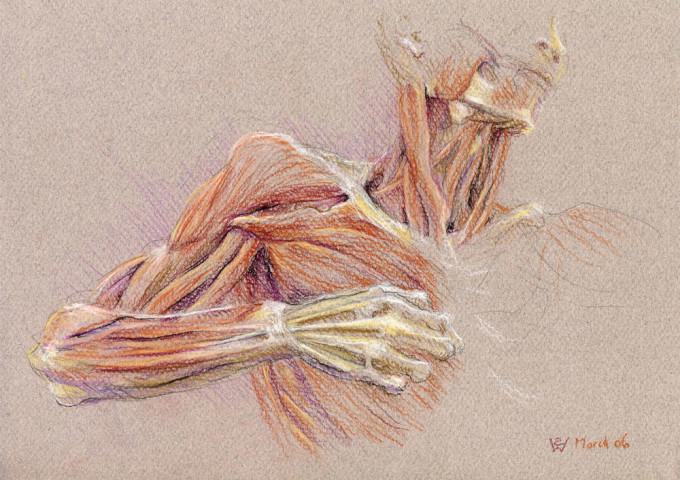
Get the latest articles delivered directly to your inbox!
Our Contributors
Class of 2022
Kyle Duke
Austin Foster
Charlotte Leblang
Ross Lordo
Class of 2021
Dory Askins
Connor Brunson
Keiko Cooley
Mason Jackson
Class of 2020
Megan Angermayer
Carrie Bailes
Leanne Brechtel
Hope Conrad
Alexis del Vecchio
Brantley Dick
Scott Farley
Irina Geiculescu
Alex Hartman
Zegilor Laney
Julia Moss
Josh Schammel
Raychel Simpson
Teodora Stoikov
Anna Tarasidis
Class of 2019
Michael Alexander
Caitlin Li
Ben Snyder
Class of 2018
Alyssa Adkins
Tee Griscom
Stephen Hudson
Eleasa Hulon
Hannah Kline
Andrew Lee
Noah Smith
Crystal Sosa
Jeremiah White
Jessica Williams
Class of 2017
Carly Atwood
Laura Cook
Ben DeMarco
Rachel Nelson
Megan Epperson
Rachel Heidt
Tori Seigler
Class of 2016
Shea Ray
Matt Eisenstat
Eric Fulmer
Geevan George
Maglin Halsey
Jennifer Reinovsky
Kyle Townsend
Join USCSOMG students on their journeys to becoming exceptional physician leaders.

An Anatomical Paradox
The best and worst attribute medical students tend to possess is that we are often times hyper-focused. While preparing for final exams last semester, I studied roughly ten hours each day for four consecutive days, memorizing everything there was to know about musculoskeletal anatomy, cardiopulmonary physiology and histology. I completely immersed myself in the material by highlighting notes, drawing out molecular processes and consulting faculty with questions. What I failed to realize at the time was that I had not stepped outside in days, I don’t even remember what I ate, and most regrettably, I secluded myself from the people who were making an effort to support me. The paradox that lies within medical school is that we attend in an effort to better the lives of others, but in the process we have to push away everyone in ours. I fell into this trap most of my first semester, and it was not until a few days in the anatomy lab that I was brought back into reality.
Every week we enter the lab for two hours to dissect various structures in the body. We started out exposing numerous musculoskeletal parts (muscles, nerves, arteries, veins, bones, etc.) and as time progressed, we dove deeper into the thoracic cavity. Towards the end of the semester, we dissected about 90% of the musculoskeletal system and removed the heart and lungs. However, after each dissection, we had to memorize an enormous volume of information. Learning the name of each structure (try remembering “pars interarticularis”…), its spatial location in the body and the numerous attachments took hours of additional studying outside of class.
The time spent in lab after class can be relieving but slightly eerie. Relieving in the sense that there are minimal distractions, but it is just you and the deceased–not everyone’s typical Friday night. Yet, in those moments of solitude, I began to find myself again. I was brought back to the reason I started this journey in the first place: to be invested in someone else’s health and wellbeing. Our donor bodies are our first patients, the first people we laid our inexperienced hands on, and ironically enough, the first people not to say anything when we made a mistake. Although they are no longer alive, they made a conscious choice to donate their body and fully expose themselves. Not only are we learning their anatomical features, but every cut we make peels back another layer of their story along the way. We learn what they looked like, the surgeries they had, the obstacles they overcame, the type of work they may have performed and what eventually led to their death. It is the closest you can be to someone without ever knowing them. In these moments, I was reminded why I ventured into medicine. I realized that spending more time with the people who mattered most was more than just all right, it was necessary.
We students can so easily get bogged down in the science or the memorization it takes to be successful in medical school. But even the most successful students can not be happy if they forget the reasons why they are enduring the long road to become a physician. The anatomy lab has brought me back to those reasons and taught me to be human again. After a long day of studying, I began to notice a trend; every time I left the lab, I would get on my phone and call a close relative or friend. We would not have long conversations, but it was enough to make me feel normal (quite honestly the best feeling a medical student can have).
As I said in the beginning, the paradox of medical school is that we often go into it in hopes to heal others, when in fact we distance ourselves from them in the process. Well, the anatomy lab has taught me a paradox itself: the more time I spent in the lab, the more I felt pulled to get out and spend time with others. I like that notion a lot better.
Shortly after being born in Mount Pleasant, South Carolina, my family moved to Atlanta and then to Charlotte, North Carolina (where we currently reside). I graduated from the University of South Carolina (Go Gamecocks) in the spring of 2015 with a major in Biological Sciences. My time at USC, my diverse experiences abroad in Kenya, my family’s experience with a debilitating autoimmune disease, and my clinical shadowing and volunteering experiences brought me into the medical profession. As I enter the next four years at the USC School of Medicine Greenville, I’m excited to embark on a new journey with my fellow classmates while focusing on compassionate, patient-centered care.
Transforming Medical School Blog
Copyright 2021 USC School of Medicine Greenville


